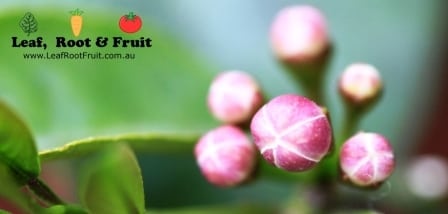
I’ve got a lemon tree growing in a large pot at the back doorstep. It’s just bursting in to bloom at the moment. Unfortunately it is also starting to get a bit of scale appearing on the undersides of some of the leaves.
If you’ve got scale on your citrus trees, you’ll probably also notice that there are ants crawling over your tree too. Scales shoot a sweet substance called honeydew. Ants like to ‘farm’ the scale to feed on the honeydew. They’ll even pick the scale up and move them all over the tree. Honeydew also leads to sooty mould, a black dusty fungus that grows over the leaves and stems. Controlling the scale will also get rid of the sooty mould.
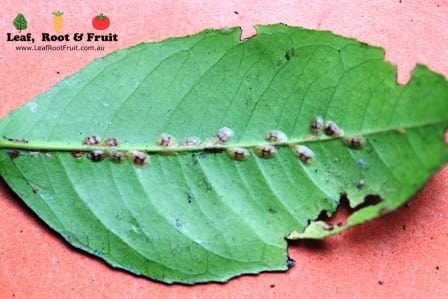
Scale in large numbers can cause leaf yellowing, leaf drop and die-back. Don’t worry though, it’s easily treated with a spray of white oil, which suffocates them. The great news is that it’s easy to make your own white oil to treat scale and aphids.
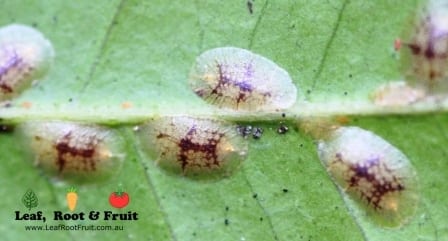
Different types of scale on citrus trees
There are many different types of scale that can affect citrus trees. Some only persist on the undersides of leaves. Others cover the fruit, causing little brown specks to appear all over the skin. Don’t worry and fruit affected with scale is perfectly fine to eat. The damage is only cosmetic.
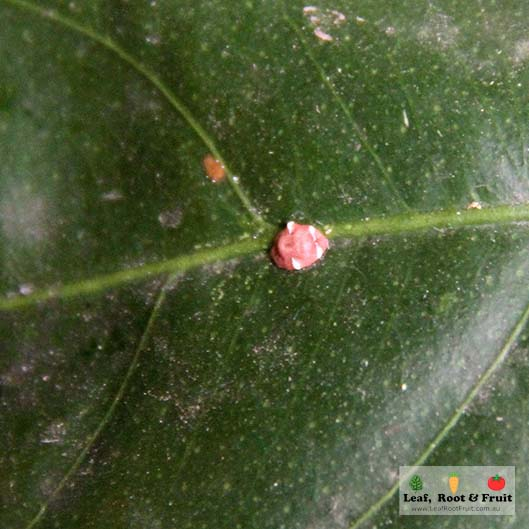
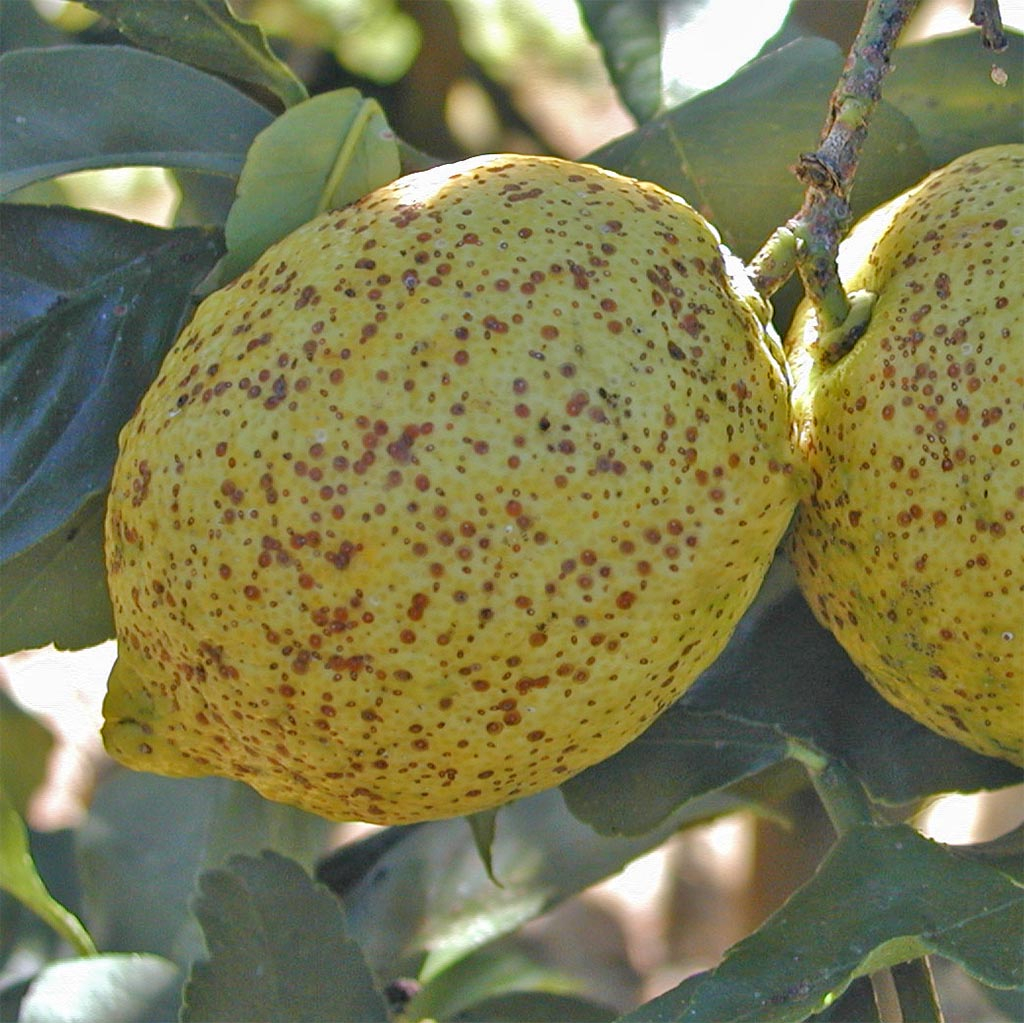
Treat the underlying cause, rather than just the symptoms
You can reach for the white oil, to kill the scale. My approach to controlling scale is to treat the underlying root cause.
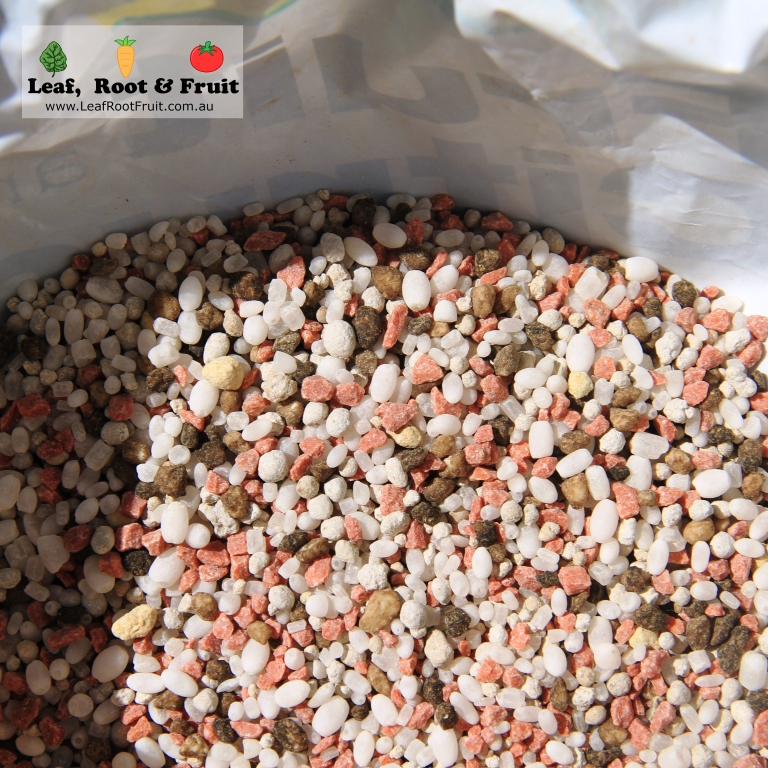
I have noticed that scale tend to present on trees that are struggling to obtain the nutrients that they need to grow strong and healthy. An underfed tree tends to attract scale. There are many different ways to top up soil nutrients for your citrus tree. A handful of general purpose organic fertilizer will usually do the trick. It will also help the tree to be more productive. In our citrus gall wasp experiment we found that fertilizing regimes had a huge influence in the productivity of the trees.
Want to know more?
I have written a 5 part guide to growing citrus. Check them out:
Citrus Growing Guide Part 1: Citrus Varieties for Melbourne
Citrus Growing Guide Part 2: Where and How to Plant Your Citrus Tree
Citrus Growing Guide Part 3: Ongoing Care and Management of Citrus Trees
Citrus Growing Guide Part 4: Pruning and Shaping of Citrus Trees
Citrus Growing Guide Part 5: Citrus Pests, Diseases and Problems in Melbourne


Hi there,
I have 20 lemon trees but only 3 trees affected with scale. I have mixed a solution of cooking oil plus dishwashing liquid and add it to water, but it doesn’t seem to have much affect (like killing them). I get out there and scape the scale off the trees, but I want to know where they come from originally.
Do they fly on the trees, or come from the soil. Is there a bug that lays eggs & begin the scale.
It’s a big problem and I want the source rather than the cure.
Thank you
Mike
Hi Mike,
Scale seems to affect trees that are underfed and/ or have poor airflow. Is it continuously the same three trees that are affected with scale and the other 17 remain unaffected? If so that’s the clue to working out how to prevent it. What do those 3 trees have (or not have) that the other 17 don’t (or do)?
Good Luck & Happy Gardening!
Duncan
how often do I use the spray
I would wait a fortnight to see how effective the spraying was. Repeat only if necessary.
I have scale on my fruit trees. Do I need to spray some type of oil on them
Hi Velma,
The scale is probably a symptom of something else. I usually find that scale infests citrus trees that are lacking soil nutrients. You could spray the scale now, but long term you are going to have to keep the tree well fed with a balanced fertilizer.
Good Luck & Happy Gardening
Duncan
Hi
I find this very practical i noticed that my citrus trees which had scales are now very healthy and free of the pests after using 40 gallons of mature on the trees.
I didn’t really understand if feeding the trees could really eliminate scales but its now evident…
Thanks for sharing this information
Musyoka
Glad you found it useful Nicholas.
Happy gardening
Hi
I wonder if you could suggest ways of removing the black sooty mildew/ mould that is covering my 3 lemon trees, I will be making the white oil and tackling the scale and the possible aphids that will appear soon and in addition I will add some organic compost. I feed my citrus with winter feed and summer feed every month but this has clearly not been enough. I’m hoping your advice in this article will strengthen my trees and if I could get rid of the horrid black stuff I would be very grateful.
Hi Anita,
You can try hosing it off or wiping each leaf with soapy water.
Happy gardening
Duncan
Scale on lemon trees is very easily controlled with a small high pressure jet of water and wash them off leaf by leaf and branch at a time. May take .5 to an hour for some trees, but the result is 100% removal and cure. Also helps get rid of ants which contribute to the problem.
Thanks for the great tip!
Cant see a 10ft tree taking jist half an hr ?
Thank you so much for an excellent remedy and so easy to make I’m especially pleased it involves no chemicals as my lemon tree is in the conservatory during the winter.
You’re welcome Dianne
The skin on my lime (fruit) appears to have scale. Almost looks like a mould but the fruit is still juicy on the inside. Any solutions?
Thanks
Hi Kerry,
I notice that scale tends to infest citrus trees that are a bit ‘hungry’. Give the tree a handful of citrus food every month or so should help it get back to full health.
Good Luck & Happy Gardening
Duncan